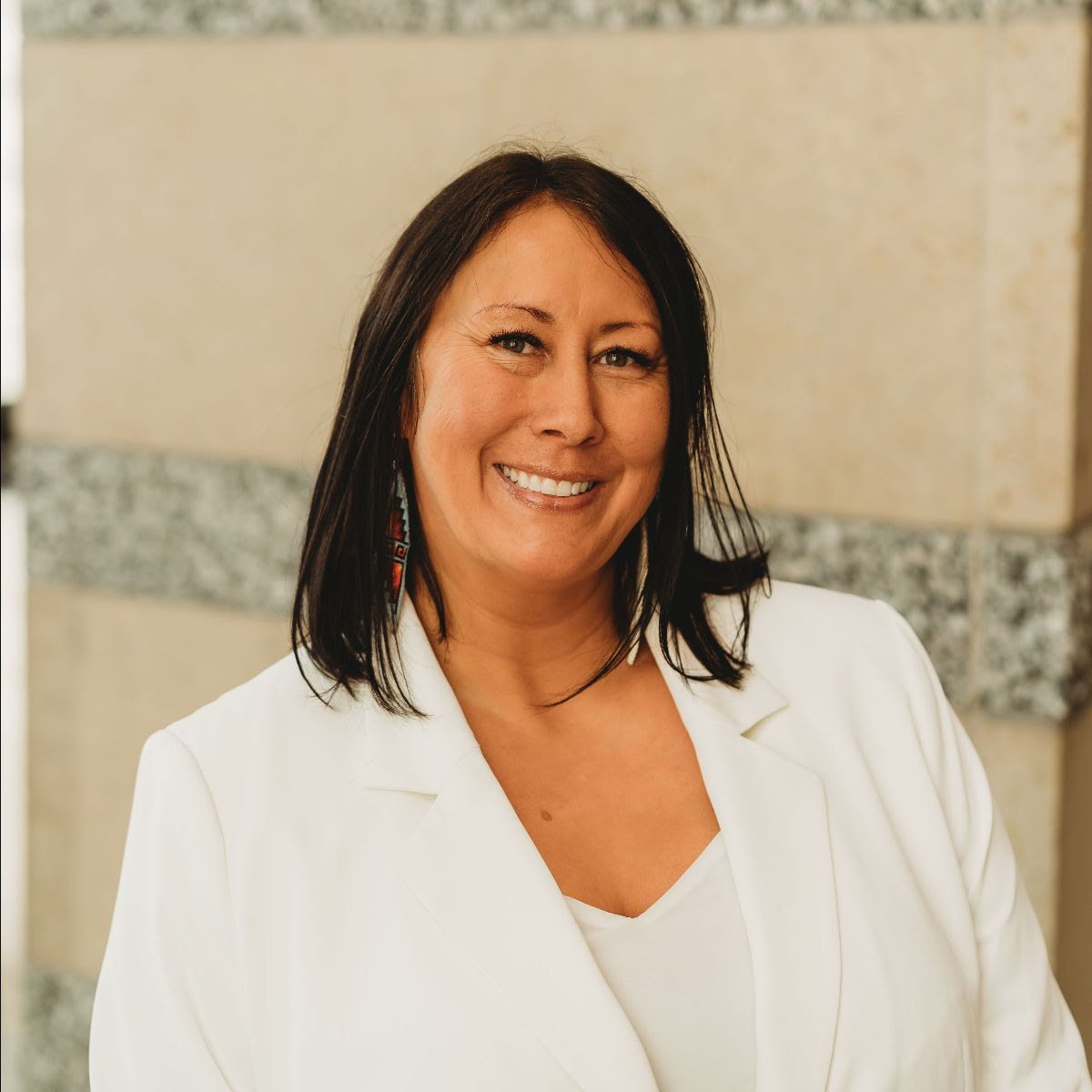
- Details
- By Native News Online Staff
Native Governance Center (NGC) is pleased to welcome Dr. Amber Annis (Cheyenne River Sioux Tribe) as its new executive director. Dr. Annis joins NGC from the Minnesota Historical Society, where she served as Associate Vice President of Tribal Nation Relations and Native American Initiatives. A dedicated advocate for Native communities, she brings a wealth of experience and a dynamic vision to lead NGC into its next chapter.
Throughout her career, Dr. Annis has worked to educate the public about Native peoples by fostering relationships, promoting open dialogue, and sharing accurate information about Tribal nations to challenge harmful stereotypes. She has also taught at Metropolitan State University and the University of Minnesota, covering topics such as cultural awareness, contemporary Native identity, environmental justice, and U.S. politics.
“I am at a point in my personal and professional journey where I see the greatest impact I would like to have is empowering Native people to lean into our own leadership abilities. There is nothing more powerful or beautiful than Native people exerting self-determination in all forms of decision-making, self-governance, self-reliance, and so much more,” said Dr. Annis.
“I see this kind of beautiful work at NGC and know that the next phase of my journey in leadership will have the most impact working directly with my own community and people,” Dr. Annis continued.
Dr. Annis has collaborated with the Harvard Project on Indigenous Governance and Development’s Honoring Nations program, which recognizes and promotes successful initiatives across Indian Country. She also serves on the board of directors for the Tiwahe Foundation. Additionally, as an alumna of NGC’s Native Nation Rebuilders Cohort 11, her experience in the program played a key role in her decision to join the organization as its executive director.
“NGC is an organization that is very close to my heart. I think it is one of the most unique Native-led organizations out there doing some of the most creative work around Tribal self-governance and resiliency. My goals are to continue this profound work and provide the support and guidance that our team and programs need,” said Dr. Annis.
“I spent two years with a cohort of strong and brilliant Native professionals who all want what is best for their nations. I thought of my cohort and the work they do individually and the impact I might be able to have as executive director,” said Dr. Annis. “To borrow our Cohort 11 motto, I plan to ‘Build It Up!’ NGC has always been a source of inspiration and empowerment in my professional career.”
“The importance of strengthening our governance systems and our capacity to exercise sovereignty through the development of Native changemakers cannot be overstated. We are the ones who know what is best for our communities. NGC’s impact in my own community has led to change and new thought leaders,” Dr. Annis continued.
As an alumna of the Native Nation Rebuilders program and accomplished Indigenous educator and advocate, Dr. Annis’ vision for NGC’s future is one that builds on the organization’s foundation with an eye toward expansion.
“My vision for NGC is to expand past the traditional areas we have supported and embrace all the other Native changemakers across the country. Our future really is our young people so I am excited to work with the team to find innovative and creative ways to bring more young Natives into this world of nation rebuilding,” Dr. Annis concluded.
More Stories Like This
Native News Weekly (August 25, 2024): D.C. BriefsUS Presidents in Their Own Words Concerning American Indians
Federal Judge Orders ICE to Halt Use of Pepper Spray, Arrests of Peaceful Protesters in Twin Cities
Tunica-Biloxi Cultural Leader John D. Barbry Walks On
Next on Native Bidaské: Federal ICE Activity in Minneapolis: Ruth Buffalo’s Perspective
Help us defend tribal sovereignty.
At Native News Online, our mission is rooted in telling the stories that strengthen sovereignty and uplift Indigenous voices — not just at year’s end, but every single day.
Because of your generosity last year, we were able to keep our reporters on the ground in tribal communities, at national gatherings and in the halls of Congress — covering the issues that matter most to Indian Country: sovereignty, culture, education, health and economic opportunity.
That support sustained us through a tough year in 2025. Now, as we look to the year ahead, we need your help right now to ensure warrior journalism remains strong — reporting that defends tribal sovereignty, amplifies Native truth, and holds power accountable.
 The stakes couldn't be higher. Your support keeps Native voices heard, Native stories told and Native sovereignty defended.
The stakes couldn't be higher. Your support keeps Native voices heard, Native stories told and Native sovereignty defended.
Stand with Warrior Journalism today.
Levi Rickert (Potawatomi), Editor & Publisher


